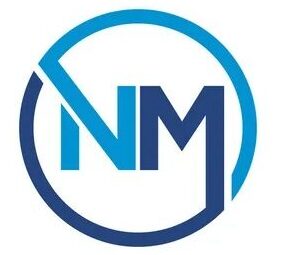“Tips for Successful Career Transition”
Embarking on a career transition can be both exhilarating and daunting. Whether you’re changing industries, pursuing a new role, or launching your own venture, transitioning to a new career path requires careful planning, resilience, and adaptability. To help you navigate this challenging but rewarding journey, here are some essential tips for a successful career transition.
- Self-Reflection and Assessment: Before making any career transition, take the time to reflect on your values, interests, strengths, and goals. What motivates you? What skills do you enjoy using? What type of work environment brings out the best in you? Conducting a thorough self-assessment will help you clarify your priorities and identify potential career paths that align with your aspirations.
- Research and Exploration: Once you have a better understanding of your interests and goals, research different industries, roles, and opportunities that pique your interest. Use online resources, informational interviews, networking events, and professional development courses to explore potential career paths and gain insights into the skills and qualifications required.
- Identify Transferable Skills: Even if you’re transitioning to a completely new field, chances are you have valuable transferable skills that are applicable across industries. Identify your core competencies, such as communication, problem-solving, leadership, and adaptability, and highlight them in your resume and during interviews. Emphasizing your transferable skills can help bridge the gap between your previous experience and your new career path.
- Fill Skill Gaps: As you explore potential career paths, identify any skill gaps that may hinder your transition. Invest in acquiring new skills or upgrading existing ones through formal education, training programs, workshops, or online courses. Leverage resources such as industry associations, professional certifications, and mentorship opportunities to develop the skills you need to succeed in your new field.
- Build Your Network: Networking is a crucial component of a successful career transition. Connect with professionals in your target industry through networking events, social media platforms like LinkedIn, and professional organizations. Seek out informational interviews with individuals who have made similar career transitions or hold positions you aspire to. Building relationships with industry insiders can provide valuable insights, mentorship, and job leads.
- Craft a Compelling Story: When communicating your career transition to potential employers or contacts in your network, craft a compelling narrative that highlights your reasons for making the transition, your relevant experience and skills, and your enthusiasm for the new opportunity. Be authentic and transparent about your journey, emphasizing how your past experiences have prepared you for success in your new role.
- Seek Guidance and Support: Transitioning to a new career can be challenging, so don’t hesitate to seek guidance and support from mentors, career coaches, or supportive friends and family members. A mentor who has successfully navigated a similar career transition can provide invaluable advice, encouragement, and accountability as you navigate the challenges and uncertainties of change.
- Stay Flexible and Resilient: Career transitions rarely follow a linear path, and setbacks and obstacles are inevitable. Stay flexible and adaptable in your approach, and be prepared to pivot if necessary. Embrace challenges as opportunities for growth and learning, and maintain a positive mindset even in the face of adversity. Cultivating resilience will help you navigate the ups and downs of your career transition journey with confidence and grace.
- Set Realistic Goals and Milestones: Break down your career transition into smaller, manageable goals and milestones, and create a timeline for achieving them. Whether it’s updating your resume, completing a certification program, or attending networking events, setting specific, measurable goals will help you stay focused and motivated throughout the transition process.
- Celebrate Your Progress: Finally, don’t forget to celebrate your achievements and milestones along the way. Transitioning to a new career is a significant accomplishment, and each step forward, no matter how small, deserves recognition. Take time to acknowledge your progress, reflect on how far you’ve come, and reenergize yourself for the journey ahead.
In conclusion, successful career transitions require careful planning, self-reflection, perseverance, and support. By following these tips and embracing the opportunities and challenges that come with change, you can navigate your career transition with confidence and emerge stronger, more fulfilled, and ready to embrace new professional opportunities. Remember, your career journey is yours to shape, and with the right mindset and strategies, the possibilities are limitless.



